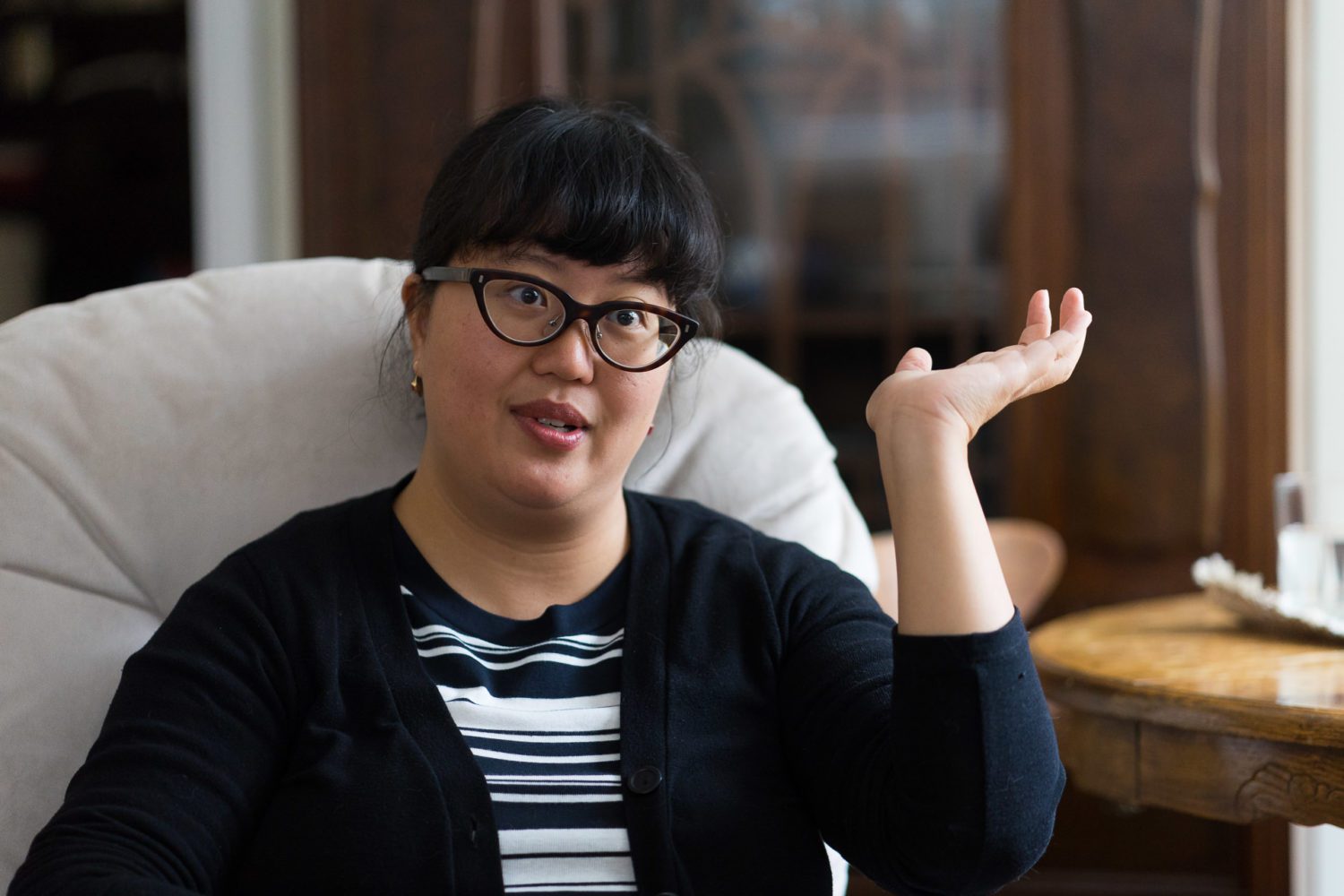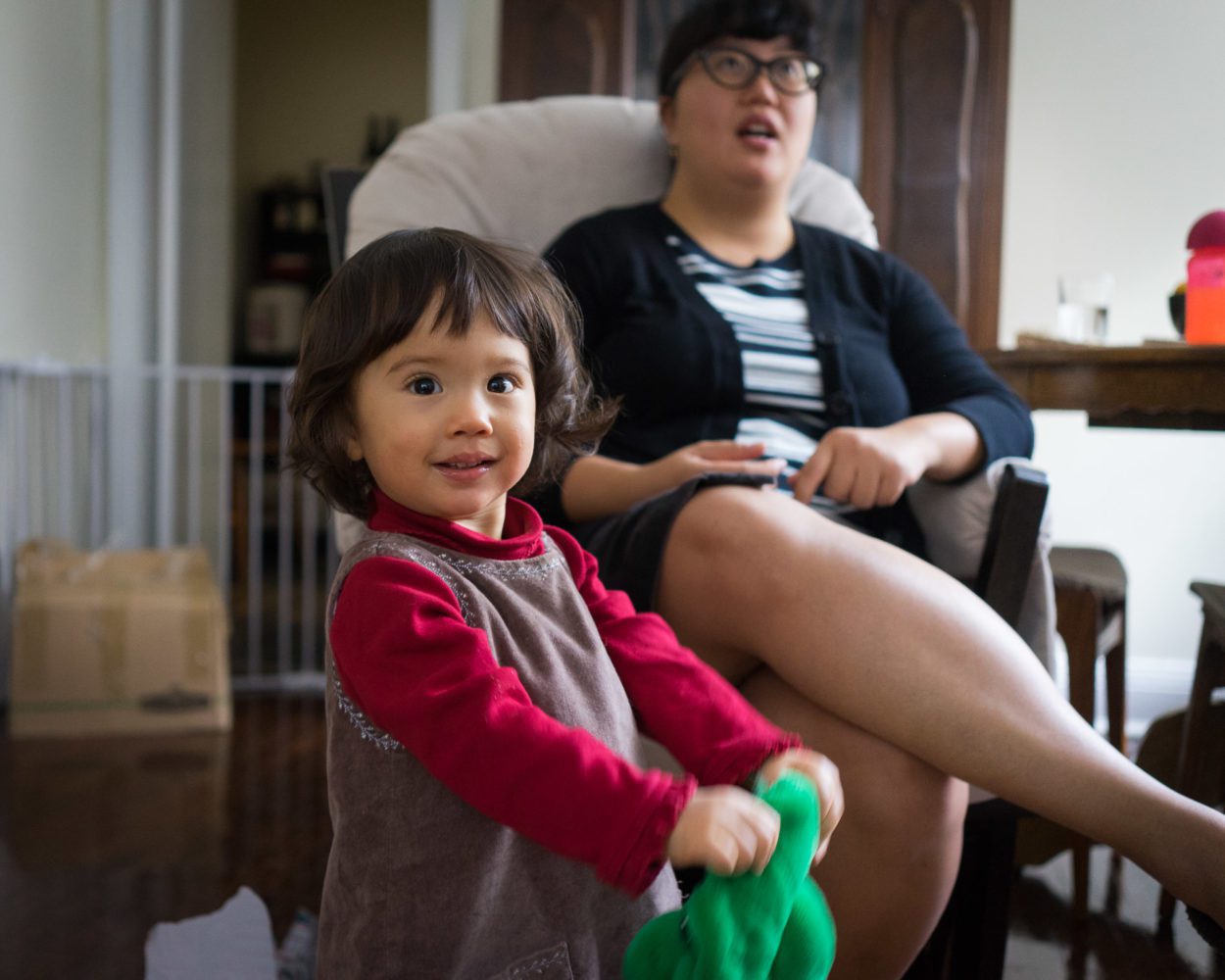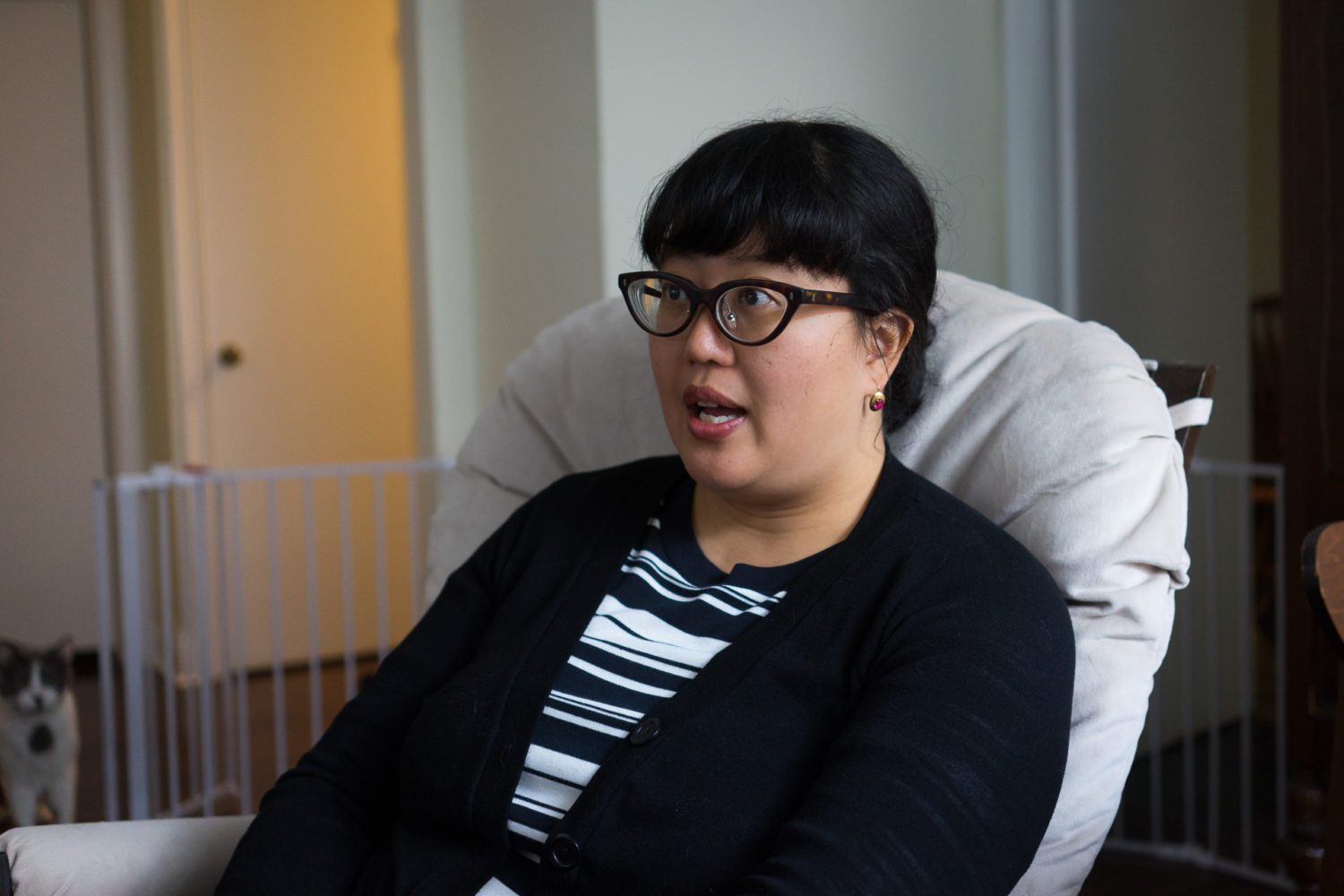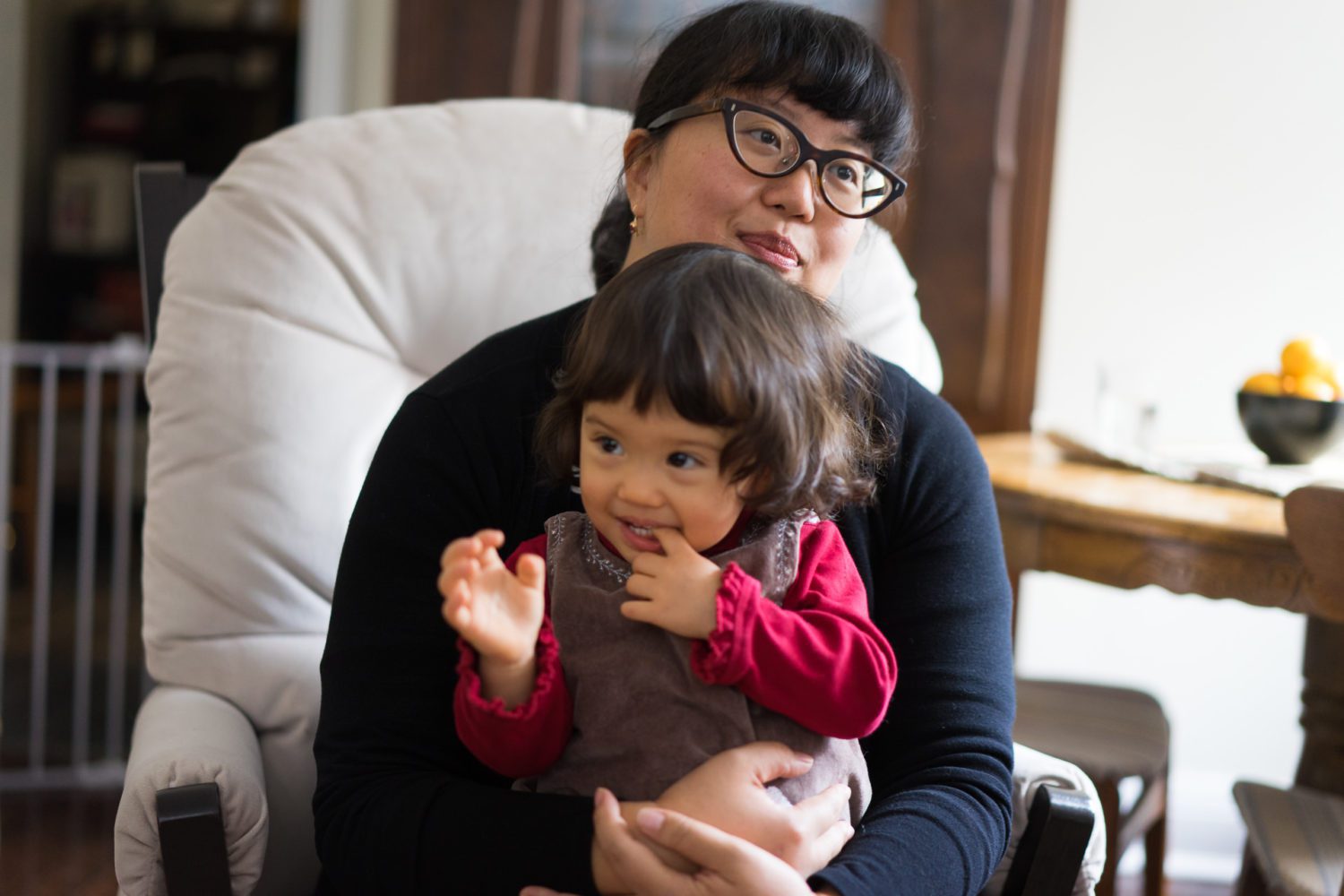“The night after my daughter was born, I sent my partner home to sleep. During the day, she was sleeping the whole time, so I thought ‘I can deal with this.’ But after my partner and midwife left, she started crying and crying. I thought ‘Oh my God, she’s hungry.’ I was really stressed out. She wouldn’t latch at all.”
“I had to start pumping at the hospital. But nothing was coming out. I felt excited because I had this beautiful baby, but also tremendous pressure because I was alone with her, she was crying and I didn’t know how to make her stop crying.”
“In the morning, I went to a breastfeeding class at the hospital for women who had just given birth. The other women were able to get their baby to latch on to their breast – if it wasn’t perfect, there was at least some kind of latch, and they were producing colostrum. I was the only one in the room where it was impossible, and I just burst into tears. I was like, ‘What’s wrong with me?’”
As a new mom, I felt so much pressure to breastfeed.
“The messaging is that it’s the best thing you can do for your child. This is the messaging you hear from the health care community, but from society in general. For me, there was a lot of pressure from my family as well.”

“I saw the lactation consultant that day. She said that this is a pretty common problem and that breastfeeding is not a completely natural thing for everyone. For some women, it’s not like the baby is just going to latch immediately and it’s going to be breastfeeding bliss. That made me feel more at ease.”
“Yet, the feeding routine she had me on was extremely difficult and time consuming. First, I would try to get the baby to latch. After about 15 minutes, she would get really angry because she wasn’t getting anything. So I would put a little bit of formula in a bottle attached to a tube, tape the tube to my finger and put it in her mouth. I would have one hand in her mouth and one hand holding the bottle above my head. It’s supposed to mimic the breast so the baby can eventually learn to latch. Then I would have to pump for 20 to 30 minutes, in hopes that it would stimulate my milk supply. I was doing this eight to 10 times a day. Each feeding was taking more than an hour.”
“My milk supply was always really low. My midwife gave me blessed thistle and fenugreek, and the lactation consultant put me on a drug to increase my supply. My mother started making me traditional soups that were supposed to help as well. I spoke to my family doctor about my troubles breastfeeding and he said to me that he wished there wasn’t so much pressure from the medical community on women to breastfeed. That was good to hear.”
At around six weeks, I realized the breastfeeding just wasn’t working. I felt like I gave it my best shot. But I cried about the decision to stop.

“When my daughter was in her second month, my post-partum depression started to manifest itself, in terms of anxiety and insomnia. I saw my family doctor, and I said ‘I am really not doing well. I’m not sleeping, I’m having a lot of really frightening, intrusive thoughts.’ I was having thoughts that I was an unfit mother, that I wouldn’t be able to provide emotional security and financial security for her.”
“The doctor connected me to group counselling for women with post-partum depression, and also referred me to a psychiatrist and a social worker. The other women that were in the group were very, very relatable. It was helpful to hear what other people were going through. They were talking about not being able to be excited about the baby, feeling really overtired and frustrated with their partners for not helping more, having no one to talk to because everyone thinks you should be so happy.”
“That was the response I got from friends and family, like ‘Oh, you have such a beautiful baby, you need to be thankful for that and think about your baby, that’s how you’re going to get over this.’ Actually, no, I was thinking about my baby all the time.”
Other people would tell me, ‘It’s going to take time.’ I was really not impressed with that answer, but it really was time.
“I think, for me, I had to wait for my hormones to readjust, and antidepressant medication helped and just being with other women who were going through the same things. I still maintain relationships with a couple of the women even though the program has ended, and we try to give each other support whenever feelings of inadequacy or anxiety start building up again.”

“There is so much focus on a woman’s physical and mental health during pregnancy. But once you’re discharged from the hospital, the focus is on the baby. And you don’t address your own mental health until it’s really desperate. I felt the pressure to focus on meeting my child’s needs first. I had appointments for my daughter, the regular pediatrician appointments as well as specialist appointments because my daughter had a heart murmur. But they wouldn’t ask any questions about me.”
The first question they would ask is, ‘Are you breastfeeding?’ And if you say no, they would just be quiet about it.
“Really, the first question should be, ‘How are you doing?’”

The breastfeeding challenges I had were definitely a trigger to my depression.
“When I was both formula feeding as well as trying to breastfeed, I didn’t feel like I was able to leave the house for an extended period of time. I couldn’t bring the tubes, the tape, the breast pump – and how was I going to warm the formula? Staying at home compounded the feelings of isolation. The days were very long. My partner left for work at six in the morning and came back at six at night. I was on my own with a new baby. It’s a lot of time to be in your own head.”
“I was worried that not breastfeeding would affect my daughter’s IQ levels. Or that I wasn’t going to have a good bond with her as a result. This is the propaganda you hear about breastfeeding. Looking back, it seems quite silly because I’ve always thought of myself as a feminist and believed that really, it’s a woman’s right to choose how she feeds her child.”
“I have a great relationship with my daughter, and in terms of her cognitive development, she’s probably advanced. She’s wonderful. I love her immensely.”


The comments section is closed.